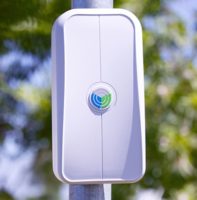
“Facebook has no intention of transforming itself into a bona fide Internet Service Provider” said Wired.com, “and it’s not interested in selling this new hardware. The aim is to give it away so that a community of players can build networks,” Wired said. “Google is pushing in a similar direction building high-flying drones and high-altitude balloons, the difference is Facebook is freely sharing its design, a way of accelerating the progress of new technology that has served the company so well in the past,” Wired said.
OpenCellular is a shoebox-sized device that can be attached to a tree or lamp post, and it has the ability to support a variety of communication options including network in a box or access points for 2G or LTE. With constructing an entire network tower being too expensive, said an article in yourstory.com, OpenCellular provides a cheaper alternative. An important feature of the device would be its ability to withstand harsh conditions, making it a reliable bet.
“[W]e designed an innovative mounting solution that can handle high winds, extreme temperatures, and rugged climates in all types of communities around the world,” said Facebook engineer Kashif Ali in a blog post. “The device can be deployed by a single person and at a range of heights — from a pole only a few feet off the ground to a tall tower or tree.”
The project is part of Facebook’s broader goal to increase connectivity across the globe, which it has attempted with other systems like the Aquila drone and networked UAVs.
The system will operate as a customizable base chassis for a WAP (wireless access point), reports Network World, and will be able to connect wireless devices using 2G, LTE and WiFi. Facebook said during the design stage it focused on making the system affordable and easily deployable. Among its other features, OpenCellular will be able to operate using a variety of energy sources, including PoE, solar, DC and batteries. It will also be able to operate as a simple access point or a full network-in-a-box.




Reader Interactions